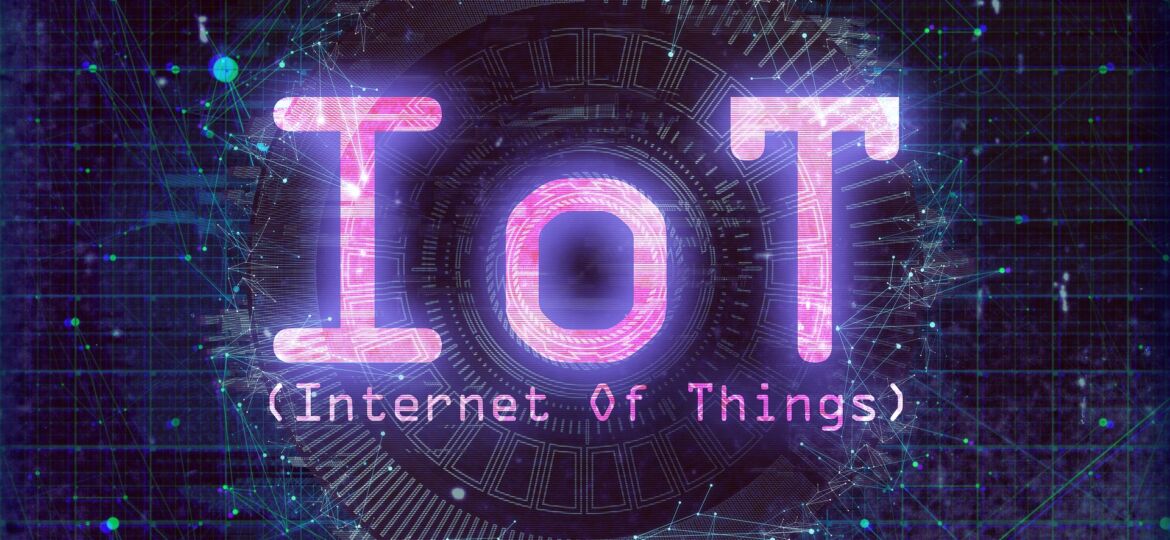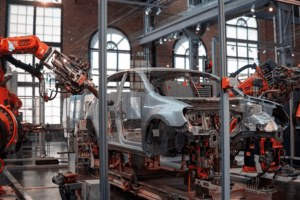
IoT these days is the most spoken about topic, it is evolving rapidly and soon will be part and parcel of our life. Let us understand all about it.
Definition
The Internet of Things (IoT) can be defined as a network of objects that are embedded with sensors or software, the main aim of this is to keep the devices connected for exchanging data over the internet. The devices that are connected can be as simple as a TV, refrigerator of your home to the sophisticated industrial tools. As of now, there are around 10 billion IoT devices worldwide and it is estimated to grow up to 22 billion by the year 2025.
How does IoT work?
IoT consists of smart devices that use embedded systems to collect, send and act on the data they acquire from their environment. The devices are either connected to the cloud or are connected to each other. These systems do not need much human intervention. At times IoT systems use machine learning and artificial intelligence to make the system even smarter and faster.
Why IoT is important?
There are several benefits of Internet of Things, a few of them are listed below.
- A larger amount of data helps in making better decisions
When the sample size of data is very large, the decision-makers and deduce and analyze in a better way and thus resulting in good output. If we take an example of a smart refrigerator, the sensors can collect information like – no of times the refrigerator is opened, power consumption, temperature, etc, this can help companies to make a better device and ultimately provide a better product and reach higher profits.
- Minimize human effort
IoT rarely needs any human intervention, they are meant to make our lives easier and comfortable.
- Saves time and money
If we take an example of IoT devices like thermostats or cooling, are automated as per the requirement of the user and thus help in managing the resources efficiently. Smart devices also help businesses around the world to save time and money and manage their processes in a better way. The saved time can be better used for other challenging tasks.
- Monitor and track the processes
Companies can better track the efficiency of each product/Process, thus increasing the efficiency and achieving faster results.
- Better quality of life
People are getting busier day by day, and businesses face greater challenges and competition on daily basis, when IoT does some mundane tasks for you, the stress of doing the repetitive tasks is lifted. Thus, IoT helps in improving the quality of life.
What technologies have made IoT possible?
Although IoT exists for a long time, several factors made it more practical and used on a wide scale.
- Affordable sensor technology
IoT is all about sensors, the availability of affordable and good quality sensors has made IoT grow popular.
- Connectivity
Several Network protocols have made sensor connectivity very easy. They efficiently connect to Cloud or any other data transfer devices.
- Cloud computing platforms
With the invention of so many cloud platforms, consumers and businesses use it for their benefit. They can simply store the data on the cloud, without having to manage it on their own.
- Machine learning and analytics
Businesses can gather insights into their business faster, with the means like cloud computing and machine learning. First of all, they do not have to manage data moreover Machine learning helps them to give quicker and meaningful insights
- Conversational artificial intelligence (AI)
IoT is even more appealing to the consumer due to personal assistants like Alexa or Siri. Who wouldn’t like work getting done by the command of your voice?
What industries can benefit from IoT?
Manufacturing

The manufacturing industry relies on how well the production line works, any issue in that can cause huge downtown, repair, and loss of valuable man-hours. IoT helps resolve this issue by updating about the failure on time. The warning from the sensors helps to do corrective measures on time and thereby saves lots of valuable resources.
Automotive

The automotive industry also benefits from IoT, the way sensors can update about the failure on the production line, the sensors can also help consumers to warn about the engine/car with impending issues, these can again save time and even life of someone.
Transportation and Logistics

Transportation and logistical systems benefit from a variety of IoT applications. This industry needs lots of coordination with customers, companies, drivers, etc, it also depends a lot on weather conditions and space in warehouses. IoT helps to manage this well. It can also help to monitor the temperature-sensitive goods and helps to reduce the damage to the products.
Retail

Inventory management and attracting customers is big challenge in the retail industry. IoT can come to the rescue for this industry too. Managing inventory on time and providing promotional offers to customers at regular intervals can help the industry grow.
Public Sector
For the welfare of the public, IoT can be used very well. Any weather warnings or interruptions in water supply, electricity, or any important updates can be sent at a greater speed and high accuracy.
Healthcare

In the healthcare industry, time is of crux to save lives. For saving a life, the resources should be available on time. IoT can help in asset management so that patients can get the available resources at the required time. IoT can also help the industry by management of staff, insurance, finances, medicines, etc.
Employee welfare and Safety

Workers that work in a mine, Oil industry, Chemical industry are often facing hazardous things. The IoT sensors equipped in such places can notify before any major accident could happen, thus saving the lives of many. Some IoT wearables also help manage health which helps doctors to treat better.
IoT has developed a lot and will continue to develop in the coming years, soon we can see IoT-enabled houses and offices that make our life easier. I hope you found this blog to be insightful.